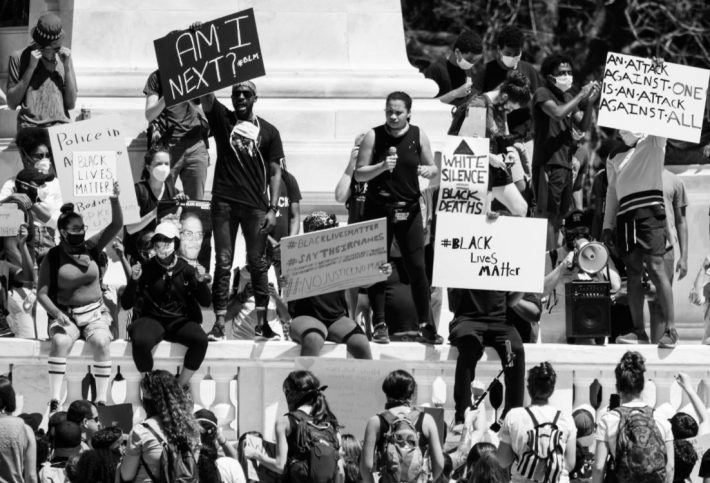Black History Month was made in the 1980s in the UK as a result of activist communities aiming to challenge the systemic racism that lingered in a very dominantly Eurocentric school system. Today, Black History Month has spread further from this and is now celebrated in UK societies including museums and galleries. Black history month remains crucial as it aims to promote and celebrate Black men and women who have contributed to modern society. It not only shines a light on Black experiences but recognises the underrepresentation of many Black individuals. For a long, Black history has been side-lined, misrepresented and made unimportant. Having the UK being built by Black communities as well as other non-white societies, it is important to include these factual histories into curriculums – allowing the voices of Black individuals to be recognised and celebrated.
Not only is Black History Month about the historical past of Black individuals, but it also contributes to vitalising British Black modern-day experiences. Black History Month allows individuals to gain a broader understanding of Black histories that goes beyond racism and slavery to also spotlight Black achievement. Black History Month can be used to take time to recognise and educate ourselves on ongoing Black struggles and experiences that not only include racism but highlights microaggressions in public life. For us to understand where we are, we must understand our past and how we got here, including the events and people who shaped the way Britain stands today.
Black History Month, as important as it is to every month, can be used to brush off the dust on your bookshelf, and read books from those that talk about Black struggles. This can include well-known books such as “Black Skin, White Masks” by Frantz Fanon or “The Fire Next Time” by James Baldwin. Nevertheless, it is important to understand that Black History Month is not limited to one month and continues to carry relevance daily.
Rayan Haji, Politics and International Relations, Year 3
